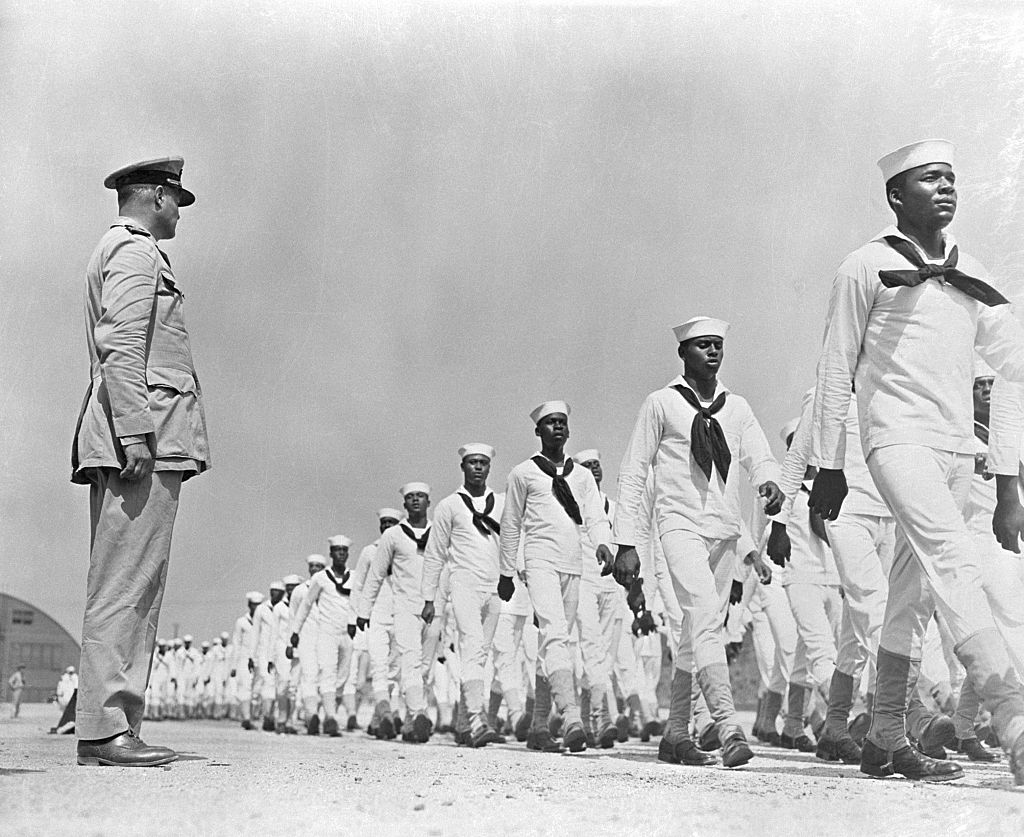Democratic lawmakers are looking to revive an effort to pay the families of African American World War II veterans the benefits they were denied or prevented from taking advantage of due to their race.
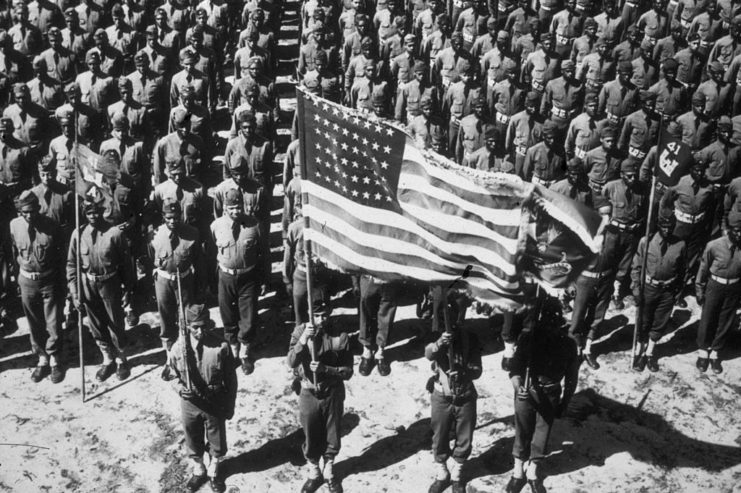
Titled the GI Bill Restoration Act, the bill was introduced in honor of Veterans Day, and would benefit surviving spouses and living descendants of Black WWII veterans who were denied the opportunity to build wealth with educational and housing benefits through the GI Bill.
“While the original GI Bill ushered in decades of prosperity for post-war America, access to this prosperity was limited for Black World War II veterans who were denied full access to these benefits by mostly-white state and local Veterans Administrations,” read a press release about the new legislation.
A Senate bill will be introduced later this month by Senator Rev. Raphael Warnock of George, the son of a WWII veteran.
“This is an opportunity for America to repair an egregious fault,” said majority whip, Representative Jim Clyburn (D-SC). “Hopefully it can also begin to lay a foundation that will help break the cycle of poverty among those people who are descendants of those who made sacrifices to preserve this democracy.”
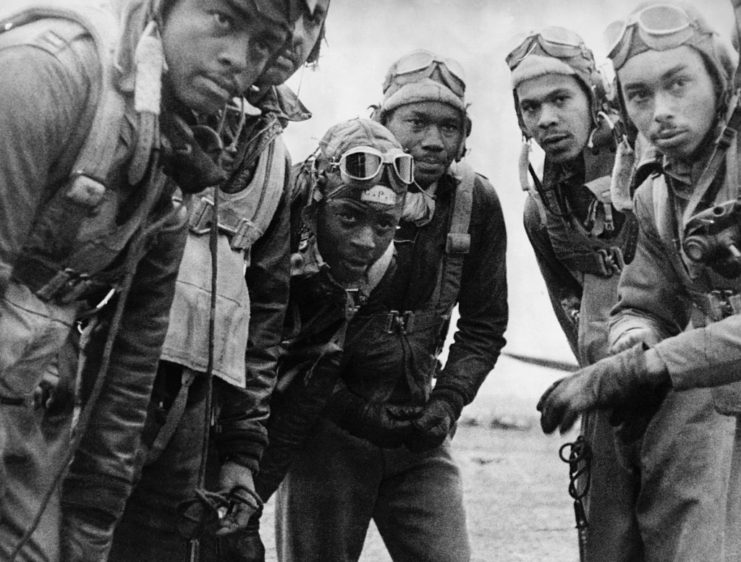
President Franklin D. Roosevelt signed the Servicemen’s Readjustment Act – better known as the “GI Bill” – in 1944. It ensured millions of veterans were given benefits to help them readjust to civilian life, regardless of race. The only stipulation was that they had to have served more than 90 days and been honorably discharged.
However, racial discrimination meant many African American WWII veterans received less money from their local Veterans Affairs offices. This was especially true in the Deep South, where Jim Crow laws imposed racial barriers to education and home ownership.
VA officers made it difficult for Black veterans to access their benefits and lessened their value by directing them away from predominately white colleges and toward more vocational programs. In contrast, the bill, along with the Federal Housing Administration’s racist housing policies, helped bolster home ownership among white veterans, creating a ripple effect that continues to benefit their descendants.
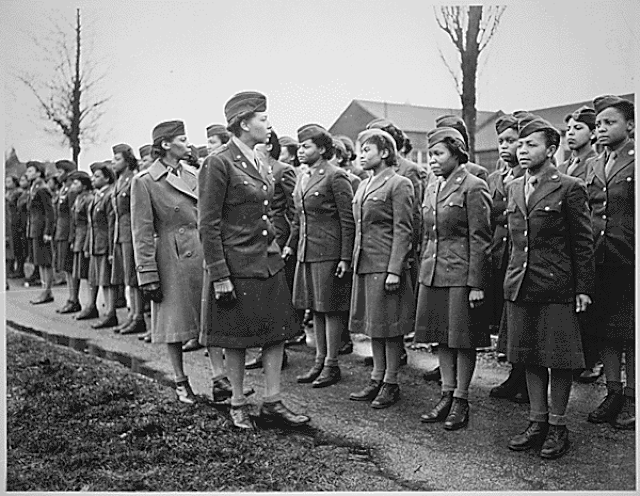
“There are a lot of Black Americans who are feeling the effects of this injustice today, even though it was originally perpetuated 70 years ago,” said Representative Seth Moulton (D-MA), a Marine veteran who served four tours in Iraq. “I think that restoring GI Bill benefits is one of the greatest racial justice issues of our time.”
Preliminary analysis suggests African American and white veterans accessed their benefits at similar rates, but that racial barriers limited the way in which Black veterans used theirs. As such, the cash equivalent of their benefits was just 40 percent of those received by white veterans.
Moulton authored the new legislation. Under it, there would be an extension of the VA Loan Guaranty Program and GI Bill educational assistance to Black WWII veterans and their descendants. It would also create a Blue Ribbon Panel “to study inequities in the distribution of benefits and assistance administered to female minority members of the Armed Forces and provide recommendations on additional assistance to repair those inequities.”
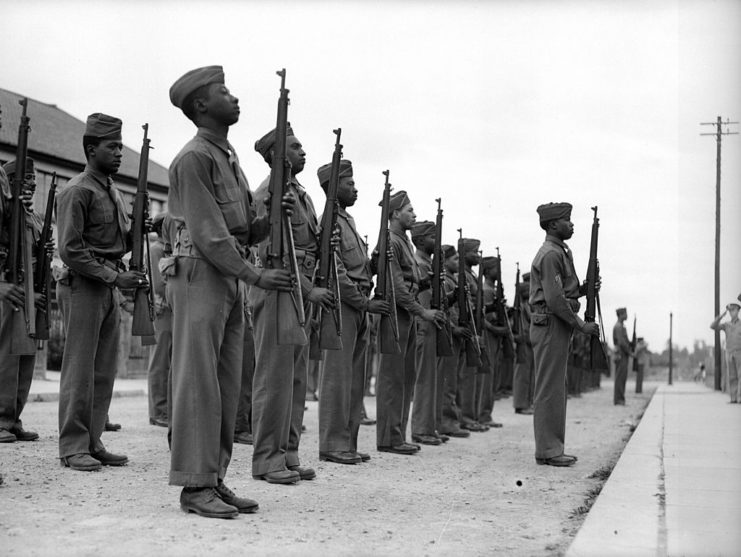
The bill is named for Sergeant Isaac Woodard Jr., a WWII veteran from Winnsboro, South Carolina. In 1946, after returning home from the war, he was brutally beaten and blinded by a police chief. The acquittal of his attacker by an all-white jury spurred the integration of the US armed services in 1948.
It also honors Sergeant Joseph H. Maddox. Maddox was injured during his WWII service and medically discharged. After applying and being accepted into Harvard University, he sought help from the VA to pay for his tuition. However, he was denied payment to “avoid setting a precedent.” It was only after contacting the NAACP that he was promised his educational benefits.
